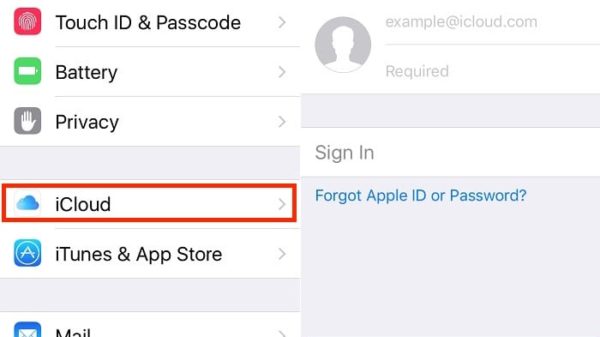In a world run by data, the information processed must be leveraged not only to make strategic decisions but also to take advantage of competitors. In the meantime, cloud computing has come to be a game-changer, making available scalable, flexible, and cost-effective solutions for storing, processing, and analyzing large volumes of data.
Thus, in this blog post, we take the confluence of cloud computing with business analytics and how this duo of life-changing technologies is etching the future for businesses.
Understanding Cloud Computing and Business Analytics
Cloud computing is a term used to describe on-demand services for delivery and procurement over the internet, offering a variety of services such as storage, databases, processing power, and analytic power with zero upfront investments from the customer.
On the other hand, business analytics refers to a multidisciplinary field using various analysis methods and tools to obtain value from insights, trends, and data for making data-driven business decisions that will drive growth and progress. “Cloud computing has married to business analytics to enable a enabler synergy powerful enough to see organizations realize their potential with data effectively, delivering insights at scale.
The Impact of Cloud Computing on Business Analytics
1. Scalability: One of the key advantages of cloud computing for business analytics is scalability. This is the beauty of any cloud-based analytics platform with the capability to scale elastically on demand; it enables an organization to process and analyze mountains of data, all without big, up-front investments in terms of hardware and infrastructure.
Such a nature of scalability obviously does benefit businesses—especially those that have fluctuating workloads or seasonal peaks—acclimatize to the business requirements and make the most of efficiency.
2. Cost-efficient: Cloud computing solution is the most effective, cheap option to on-premise infrastructure over traditional on-premise infrastructure with respect to business analytics Cloud-based analytics solutions give organizations the ability to save or avoid first-line capital expenses linked to the purchase and ownership of hardware and software licensing.
Alternatively, organizations are able to pay only for the resources consumed on a pay-as-you-go basis, thereby reducing overall expenses and improving return on investment for analytics initiatives.
3. Flexibility and Agility: The flexibility and agility that cloud computing offers firms is the ability of a company to scale up and down with increased or decreased demands for their services and products. Speed is the most notable attribute of cloud-based analytics platforms. Teams can quickly deploy new analytics tools and services, experiment with different data sources and algorithms, and dial their needed resources up or down.
This, in other words, is to mean agility—the very particular that allows the organization to be ahead of the competition and further makes the business capable of innovating and rapidly adjusting according to new business requirements.
Leveraging Cloud Integration Services for Business Analytics
Informatica Cloud Integration Services play a very major role in helping organizations achieve a maximum value realization from their business analytic initiatives in the cloud. This possibility will bring together the data sources, the applications, and even the analytics tools, and hence will allow the organization to join up and analyze its enterprise data in real time.
Cloud integration service empowers companies to break data silos, ease data flows, and get a total view of business operations. It inspires improved decisions and strategic insights.
Key Benefits of Cloud Integration Services for Business Analytics
1. Data access: Most of this type of data integration, including on-premise systems and cloud-based applications, even external data sources, have to allow access to such data for running their businesses by the organization.
This centralization of data in the cloud opens the way for the organization to break down silos. Discrepancies—so prone to data—are also eliminated, assuring accuracy and integrity of data to allow for comprehensive and accurate insights by analytics.
2.Real-Time Insights: Cloud Integration Services would allow an organization to conduct real-time data analysis for actionable insights that would drive faster decision-making. Organizations bring to their analytics platform streaming data sources such as IoT devices, social media feeds, and web applications to give them a real-time view of the organization’s business so they can identify emerging trends and respond proactively to changing market conditions.
3. Scjson Dotcom: Cloud integration services offered by this help in delivering scalable and performance benefits to business analytics work song
The prime benefit attached to the same is that companies can yield the resources in a dynamic way according to their demand through cloud-based processing of data and analytic tools. The cloud integration services provide an access window for the companies to harness the power of parallel processing along with distributed computing, giving ways to faster data analytics and processing, which ultimately increases efficiency in deriving insight from data and decision-making.
Conclusion
The junction of cloud computing and business analytics, therefore, opens up a great opportunity for organizations to be able to realize to the fullest the opportunities in their data and further push for business growth and innovation. “can help a company scale its analytics initiative, drive cost efficiency. By leveraging cloud-based analytics platforms and cloud integration services, organizations can scale their analytics initiatives, drive cost efficiencies, and gain actionable insights that drive strategic decision-making. As businesses continue to embrace digital transformation and data-driven strategies, cloud computing will undoubtedly play a central role in shaping the future of business analytics and driving sustainable competitive advantage.
Hi there! This is Devin Haney. I am a Freelancer. I love to Blogging. I would love to connect with everyone here. On relaxing Sunday afternoon you will find me.




























